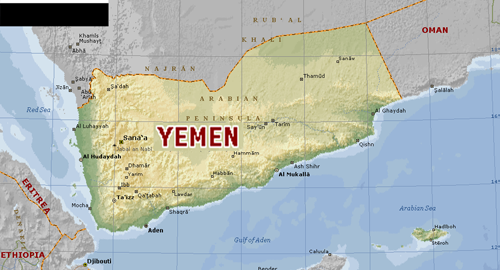John Cantlie, noto cronista del Daesh, torna in un video di 3 minuti per documentare gli effetti del bombardamento dell’Università di Mosul, ritenuta dall’esercito americano il luogo utilizzato come quartier generale dei combattenti del califfato. Continue reading
Category Archives: Terrorism
Italian Foreign Terrorist Fighters: a quantitative analysis of radicalization risk factors – by Alessandro Boncio
The Italian jihadist scene with its fluid profile and features has been analyzed in different occasions by academics and experts. Their publications however, were conducted with a qualitative approach and, apart from some real cases description and analysis, there is a vacuum in the quantitative research that needs to be filled. Continue reading
Dacca: l’atto di fede – by Davide Scotti
I tragici eventi in Bangladesh mostrano il sadismo degli uomini verso altri uomini dove i primi si dichiarano migliori dei secondi per una qualsiasi caratteristica più o meno reale. La scelta della presa di ostaggi e la successiva distinzione tra musulmani e non-musulmani attraverso la recitazione del corano pone ciascun credente di fronte alla scelta di mostrare la propria fede consapevole che l’altro diverso da se sarà soggetto alla morte. Continue reading
La Strage di Dacca: terroristi “ricchi” e jihad estesa – by Giovanni Giacalone
Secondo quanto emerge dalle prime informazioni sull’identità dei terroristi di Dacca, il commando era composto da ragazzi ricchi provenienti da famiglie benestanti. Continue reading
Attacco in Bangladesh: le ragioni dell’attacco al bar-ristorante di Dacca – by Alessandro Burato
La situazione in Bangladesh non si è ancora conclusa. L’attacco, perpetrato da un commando islamista che ha fatto irruzione in un bar-ristorante di Dacca, la capitale del Bangladesh, nell’ultimo venerdì di Ramadan è la conseguenza della situazione che interessa la regione obiettivo della penetrazione del Daesh, rafforzato nella propaganda recente, e di una strategia nella scelta di target e modus operandi ormai nota.
Continue reading
29 giugno 2016: Il secondo compleanno del Daesh
Già da un paio di giorni il Daesh sta utilizzando i canali della propaganda per diffondere messaggi sullo “stato dell’arte” del Califfato dopo due anni dalla proclamazione del 29 giugno 2014. Continue reading
Attack at the Ataturk Airport in Istanbul: a first comment (Attacco a Istanbul) – by Maria. Chr. Alvanou
The double suicide attack tonight at the Ataturk airport in Istanbul came unfortunately as no surprise to those dealing with the assessment of terrorist threats. For months now governments all over the world have put a raised travel advisory on Turkey, because of recent attacks in Istanbul and Ankara. It is a tragedy expected in the campaign of terror that has started for some time now in the country. Continue reading
Knife stabbings: operational advantages and countering options – by Maria Alvanou
Lately in Europe, apart from suicide attacks, it is the knife attacks that have spread death and the seed of fear. In Paris a Muslim perpetrator who attributed his actions to IS (and IS accepted them under its ideological umbrella) entered the home of a police officer and killed both him and his wife (also working in the police), before getting killed by the law enforcement authorities and fortunately before harming the small child of the family. The killer filmed and posted his actions in Facebook. A few months before on a train in Germany another perpetrator attacked passengers with a knife. Although he shouted “Allahu Akbar” the German authorities seem to connect the incident with the perpetrators phychiatric problems and not with a terroristic cause. Shot but also stubbed a dozen times, a young female MP in Leeds died by the hand of an attacker, who appears to be driven by political reasons. The three events show of course no relevance between them and there is still research about their circumstances, as well as about the extend extremism and organized group activity could be behind the killings. Nevertheless, the above stabbings are a good reason to start contemplating on a possible new operational threat: knife attacks. Continue reading
The Importance of Being Local. Framing AQAP’s intra-jihadi Hegemony in Yemen – by Eleonora Ardemagni
In Yemen, the intra-jihadi rivalry between al-Qa’ida in the Arabian Peninsula (AQAP) and local cells of the so-called Islamic State has been gaining momentum, exacerbated by the ongoing multilayered conflict in the country. Since the beginning of the crisis, jihadi networks were able to capitalize on security vacuum, local resentment against central institutions and the sectarian narrative promoted by Saudi Arabia and Iran as a power politics tool. Notwithstanding escalating “spectacular” attacks against Shia civilians and security/governmental forces, IS didn’t manage to challenge AQAP’s supremacy within the Yemeni jihadi camp so far. Nevertheless, the intra-jihadi rivalry is now on the rise, due to a gradual convergence in operational areas and targets between AQAP and IS. Continue reading
Lone Wolves e Jihad dei Coltelli: la strategia operativa della Stealth Intifada – by Marco Maiolino
Alle 5 di mattina dell’11 maggio 2016 un ventisettenne tedesco, carpentiere disoccupato, ha accoltellato a morte un uomo e ferito altri tre, urlando ‘Allahu Akbar’, alla stazione ferroviaria di Grafing, una cittadina a circa 20 chilometri da Monaco di Baviera. Le forze di polizia tedesche non hanno rinvenuto particolari legami dell’uomo con il terrorismo islamista internazionale e hanno definito l’attentatore come mentalmente disturbato Continue reading
Il predicatore Bujar Hysa intervistato per i media albanesi – by Giovanni Giacalone
Il fenomeno della radicalizzazione islamista in atto in Albania è chiaramente collegato all’infiltrazione wahhabita in determinati ambiti della società albanese, considerati “sensibili” alla propaganda estremista, dove le condizioni socio-economiche sono particolarmente critiche, nonché dove le istituzioni faticano ad arrivare. Continue reading
Ukraina, Orlando, Parigi: un fil rouge? – by Marco Lombardi
Tre eventi lontani nello spazio. certamente indipendenti l’uno dall’altro? Continue reading



